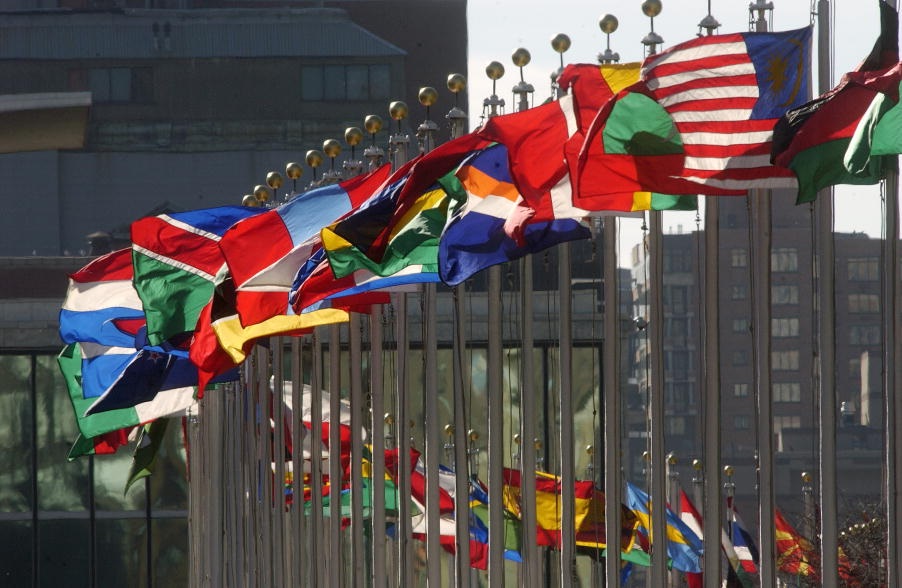The Peninsula
New North Korea Sanctions: The Best that Could be Expected

By Troy Stangarone
After North Korea’s sixth nuclear test, there were expectations that the United Nations would pass a new round of sanctions that would potentially be debilitating for North Korea. Early discussions included bans on exports of oil to North Korea and cutting off North Korea’s use of overseas laborers to earn hard currency. Steps that far were always unlikely, but based on initial reporting of the expected measures in the new sanctions resolution and a review of a recent draft of the new sanctions resolution, the United States likely achieved the best result it could have hoped for in a new round of UN sanctions.
With the last round of UN sanctions having been passed only on August 5 and barely implemented, there was likely always going to be resistance to harsh new sanctions before member states had a chance to determine if the last round of sanctions were having an effect. It takes time for sanctions to take effect and states such as China and Russia most likely would not want to pile on a significant amount without knowing how the new sanctions would impact North Korea.
Additionally, complete bans on exports of oil to North Korea and the use of North Korean laborers were always unlikely, despite the serious nature of North Korea’s most recent nuclear test. While the Global Times and others suggested that China should end its supply of oil to North Korea if it tested another nuclear weapon, Beijing also has concerns about the long-terms stability of the regime in Pyongyang, concerns it is unlikely to let go of in the near future. China wasn’t the only one to back off of the suggestion of cutting off North Korea’s oil supply — Russia also quickly dismissed suggestions of an oil embargo. Without Russia’s support both in the UN and as a potential supplier of oil to North Korea, stringent sanctions on oil were unlikely.
Banning the use of North Korean labor was also always a longshot. China and Russia are the two largest consumers of North Korean labor, and Russia in particular was unlikely to support a complete ban, as North Korea supplies an important source of labor in the sparsely populated Russian Far East.
That being said, the new resolution does move the process forward in terms of restricting North Korea’s ability to earn hard currency and to limit its imports of oil. Much as initial caps on North Korean exports of coal, the new resolution would place a cap on North Korea’s imports of refined petroleum at 500,000 barrels for the rest of 2017 and 2 million for subsequent years. Also similar to the coal caps, it would require states to report their exports to the United Nations on a monthly basis.
It also places a softer cap on exports of crude oil to North Korea, which China provides to Pyongyang as aid. The soft cap limits exports to the amount exported in the prior year, but since China does not report its exports of crude to North Korea and there is no reporting requirement for crude, there is still the potential for China to export more than would be expected to North Korea.
The new restrictions on use of North Korean labor, while a step forward, are also potentially exploitable. While it would prohibit countries from issuing work permits for North Korean nationals except for humanitarian purposes or for objectives consistent with prior UN resolutions, it also allows contracts signed prior to the resolution to continue. This means that we are not likely to seen a reduction in North Korean workers abroad soon.
The resolution also contains a ban on the export of North Korean textiles, potentially reducing North Korea’s earnings of hard currency by $800 million. While this will remove one of North Korea’s major remaining export items, textiles are also a labor-intensive industry. By banning exports of textiles, this also removes one potential tool for reshaping North Korea over time — developing a larger consumer base that can eventually pressure the regime internally.
While this may have been the best that could be achieved at the United Nations, it is disappointing that China and Russia would not support more robust sanctions against North Korea. While the new sanctions continue to restrict North Korea’s ability to earn hard currency, more should have been done in response to North Korea’s test of a thermonuclear device. By holding back on more stringent sanctions, China and Russia risk sending a signal to North Korea that it should not be worried about strict consequences for their actions.
Despite China and Russia’s reluctance to go along with more stringent sanctions, it is important for the United States and its allies to continue to maintain Moscow and Beijing’s cooperation. This is not a problem that the United States can solve on its own.
Troy Stangarone is the Senior Director for Congressional Affairs and Trade at the Korea Economic Institute of America. The views expressed here are the author’s alone.
Photo from United Nations Photo’s photostream on flickr Creative Commons.
